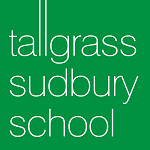One of the first rules in our lawbook is “No one may knowingly infringe on the right of any person to exist peaceably at the school, free of physical or verbal harassment.” Basically, this means if someone asks you to stop doing something, you need to stop.
When this rule is broken, we take it seriously. Everyone understands that bullying and harassment are destructive to our community. No kid wants to go to a school where they have to worry about being attacked.
If someone breaks this rule more than once, they will often be suspended by school meeting, with a strong warning that continuing this kind of behavior may lead to an indefinite suspension. “Indefinite suspension” means a student can’t come back to school until they can explain to the community how they have changed.
Our school has never had to indefinitely expel someone for bullying. Once or twice we’ve had a younger child who still hits people instead of talking--in which case we say, “Let’s try again next year.” I have never seen an older student seriously hit someone. In six years at Tallgrass, I have also never seen someone be made fun of for looking different, for their interests, or for an unchangeable characteristic like race or sexual orientation. Even new kids who are healing from previous bad school experiences don’t do that kind of teasing.
People do get left out sometimes. If they’re left out in a way that seems intentionally hurtful, it might go to judicial committee (which you’ll learn more about in the next email). An ongoing personal conflict might be dealt with through mediation. Other students and staff can end up informally mediating when friends argue or when a group is having trouble getting along.
Why does Tallgrass work so well to prevent bullying? Bullying is a natural response of children who feel powerless in some other part of their lives. It’s not hard to see how this plays out in mainstream education: teachers and other staff tell students what to do and when to do it, even if when they don’t want to. Some kids, especially those with emotional problems in other parts of their lives, react by finding ways to create their own power in whatever way they can. But when kids are given real power, they don’t need to resort to bullying.


